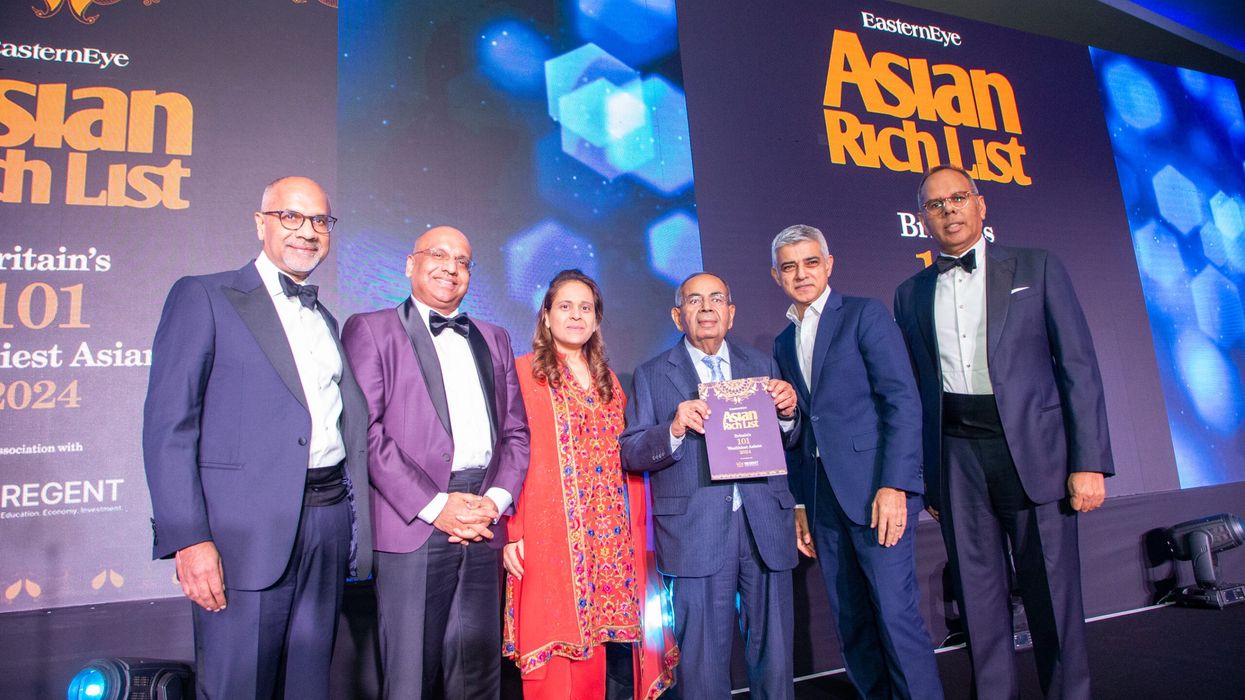AN INSPIRATIONAL businessman whose company has donated over a billion pounds to charitable causes was crowned the Business of the Year at the 25th anniversary of the prestigious Asian Business Awards, held at the Park Plaza hotel on Wednesday (22).
Nirmal Sethia is an internationally renowned entrepreneur whose business empire spans the UK, Europe, Russia, India and the Middle East. It encompasses ink production, tea plantations, sugar refining, power generation and property investments.
Since the passing of his wife Chitra in 2010, Sethia has devoted the majority of his time to the N Sethia Foundation.
His biggest contribution to the foundation has been the Chitra collection which is a collection of tea accessories, dating back from the 10th century BC. The total collection has been valued at more than £600 million.
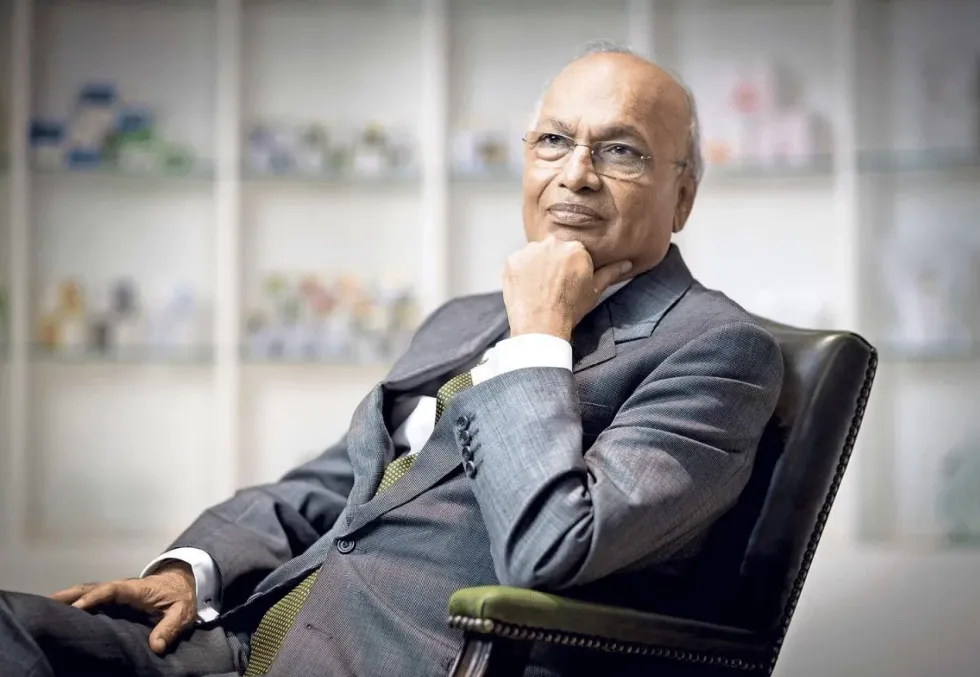
A total of nine awards were handed out at the glittering ceremony which was attended by over 700 guests, among them powerful politicians, including London Mayor Sadiq Khan, deputy prime minister Oliver Dowden and Vikram Doraiswami, the high commissioner of India to the UK, as well as billionaire entrepreneurs and industry leaders.
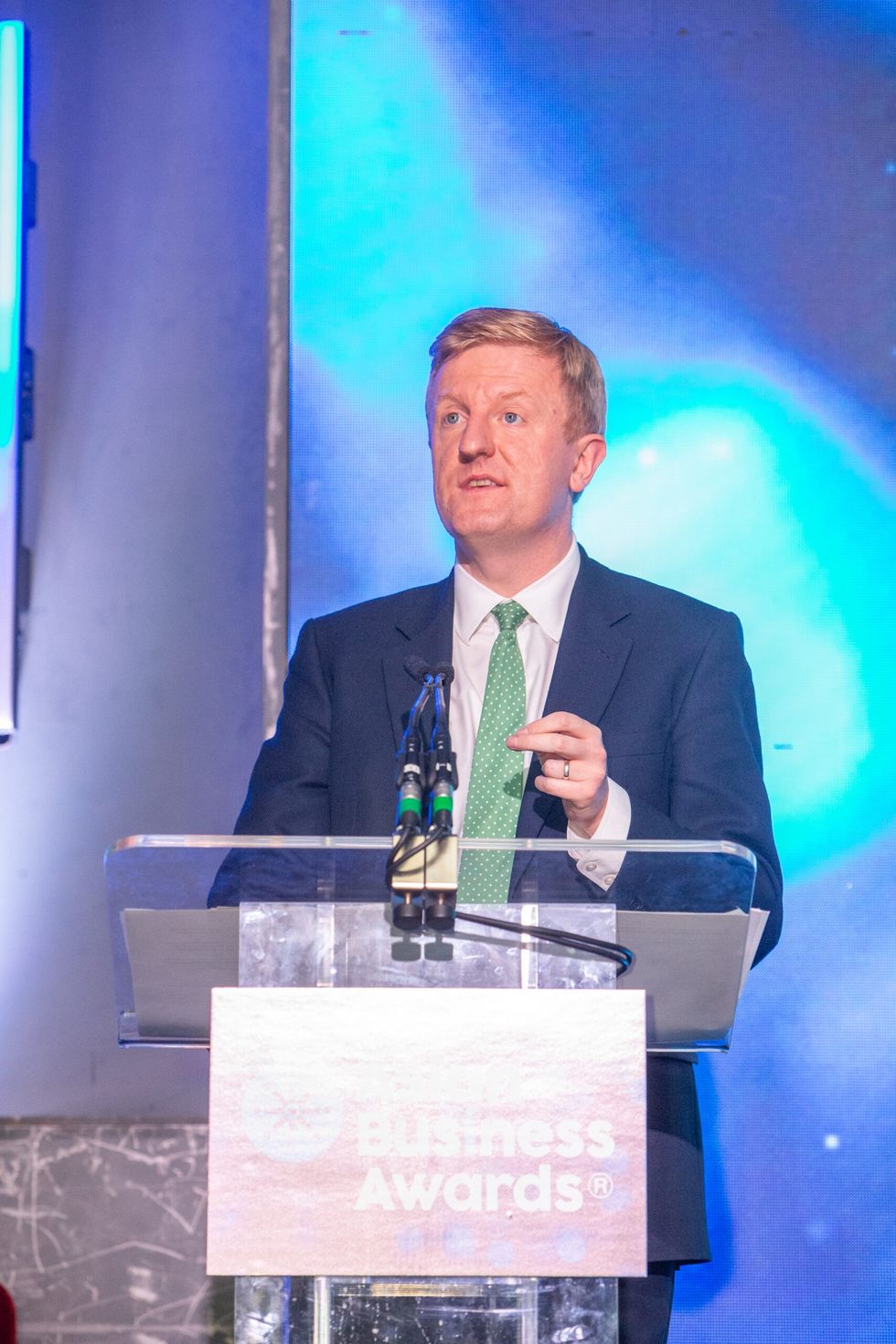
The event also saw the launch of the latest edition of the annual Asian Rich List. It profiles the 101 wealthiest south Asians in Britain.
Topping the list were the Hinduja family with an estimated wealth of £33.5 billion, followed by steel tycoon Lakshmi Mittal and his son Aditya (£12.9bn) and petrochemicals tycoon Sri Prakash Lohia, chairman of Indorama (£10.1bn).
The Asian Business Awards are hosted by the Asian Media Group, which publishes Eastern Eye and Garavi Gujarat news weeklies as well as the Asian Rich List and the GG2 Power List.
AMG Head of Digital and India Aditya Solanki said: “It is with immense pride that we reflect on the critical journey of the Asian business community over the past quarter century.
“From humble beginnings, to commanding a significant presence in various industries, the Asian community has demonstrated unparalleled determination, skill, and commitment to excellence.
Over the last 25 years, we have witnessed the rise of visionary leaders who have not only excelled in their respective fields, but I've also paved the way for the next generation of entrepreneurs.
"The Asian Business Awards have served as a platform to recognise and applaud individuals.”
Mayor Sadiq Khan quipped that had the current Tory government been in power 30 years ago, “these awards would be taking place in Rwanda”.
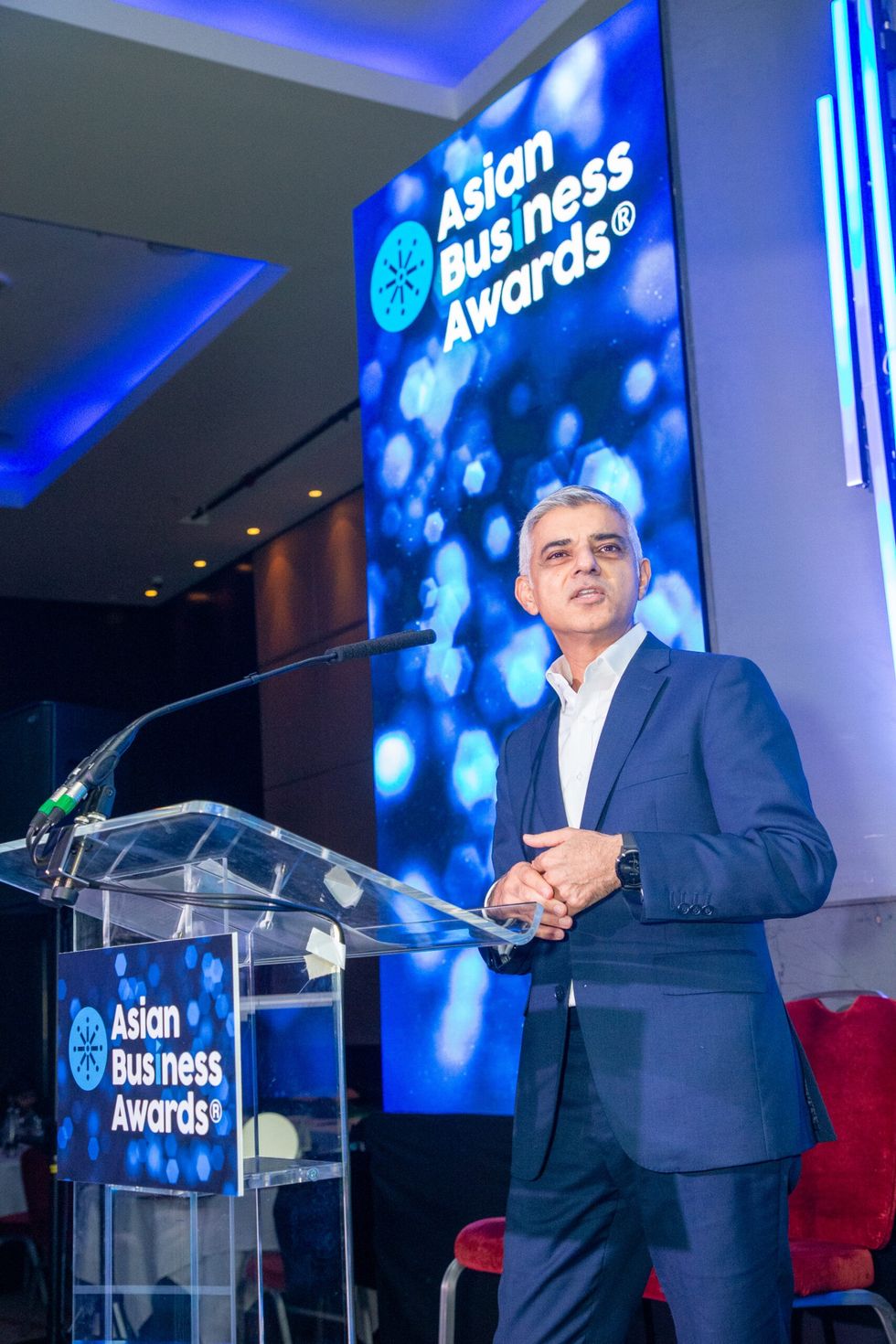
Khan recognised the immense contribution that Asian entrepreneurs have made to the UK, many who came as immigrants, saying: “The success of Asian businesses is now deeply ingrained in our national identity.
“Immigrants are innovators, they're wealth creators, they're people who can improve our society, economy and culture.
“The men and women in this room tonight help to power our country and make our city the greatest city in the world.”
Deputy prime minister Dowden paid tribute to the “unwavering ambition, hard work and determination” of Asian businesses.
“The success of British Asian businesses has affected so many sectors, from medicine to manufacturing, food to farmer, steel to retail, creativity to tech.
"Again and again, people of Asian heritage have trodden that path to success, including, I should add one bright young lad that started out helping out in a pharmacy. The man who has trodden path from a small shop in Southampton to 10 Downing Street, the man who shows that anything is possible in this great country, our first British Asian prime minister, your friends, my boss, Rishi Sunak.”
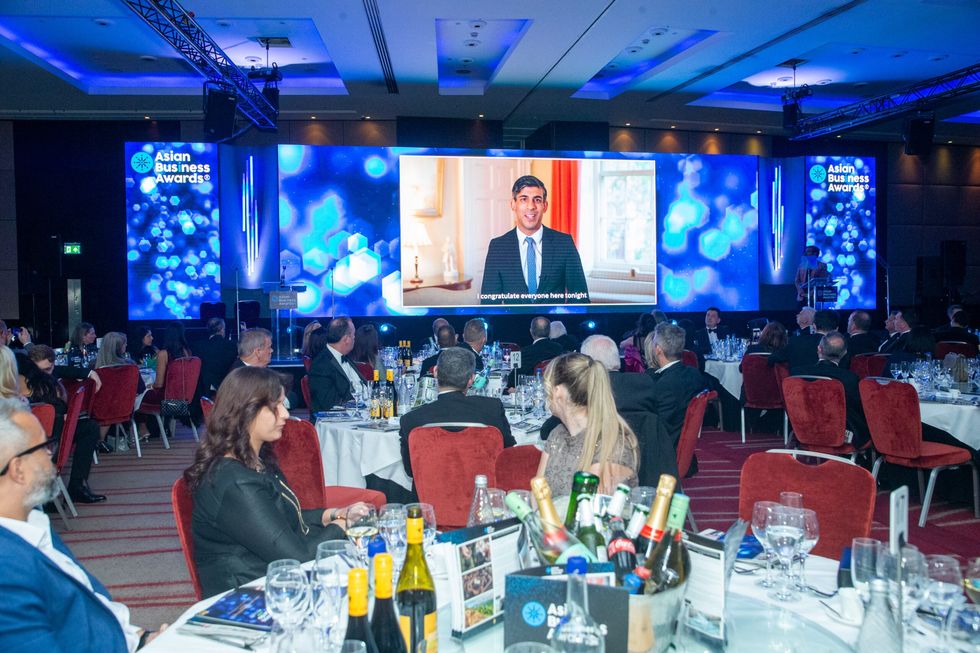
Among those leading entrepreneurs recognised at the event was Tej Lalvani, CEO of Vitabiotics, who took home the Healthcare Business of the Year Award.
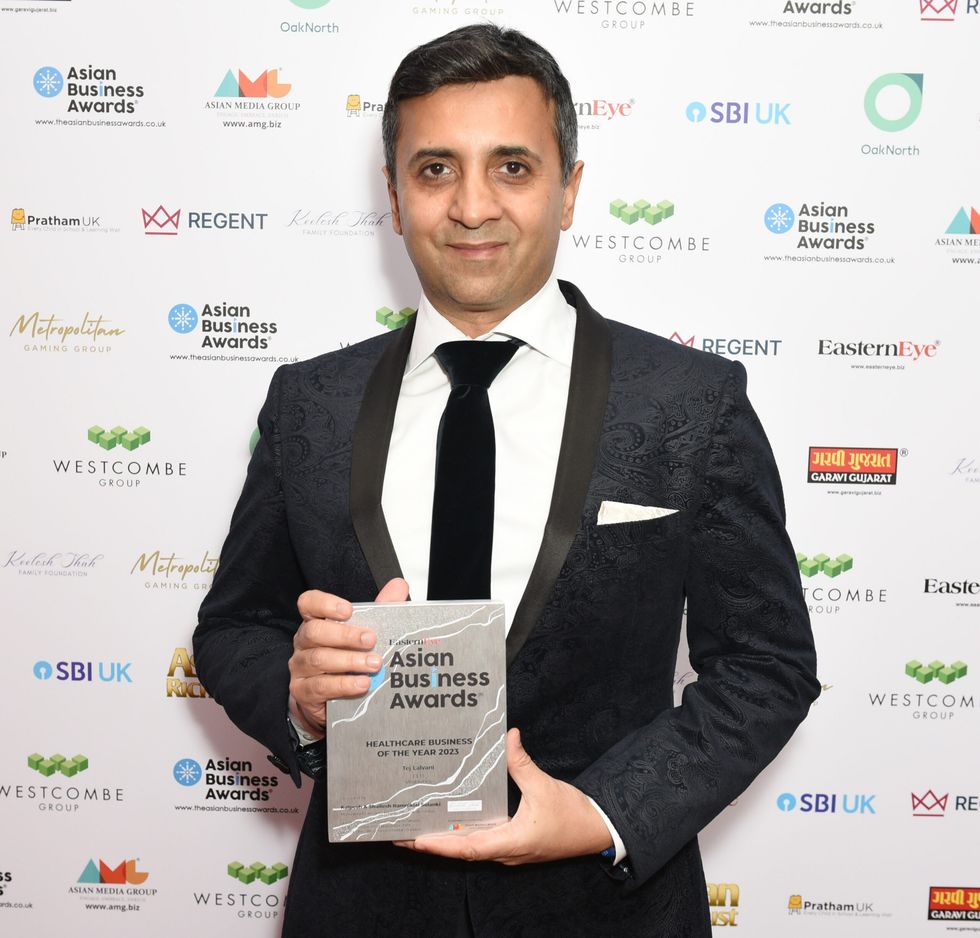
Lalvani is perhaps most famous for his five years as a Dragon on the BBC’s Dragon’s Den but his real achievement is in transforming the family business into a global powerhouse.
His shrewd business expertise over the last twenty years has led the phenomenal growth of Vitabiotics into the UK's largest vitamin company, while driving worldwide expansion to over 100 countries.
With a flair for product design and branding, Lalvani has created highly successful partnerships with Disney and Peppa Pig while bringing in famous brand ambassadors such as Nicole Scherzinger, Heidi Klum and David Gandy.
The Food & Drink Business of the Year Award went to Bobby Bawa, managing director Foodspeed Ltd.
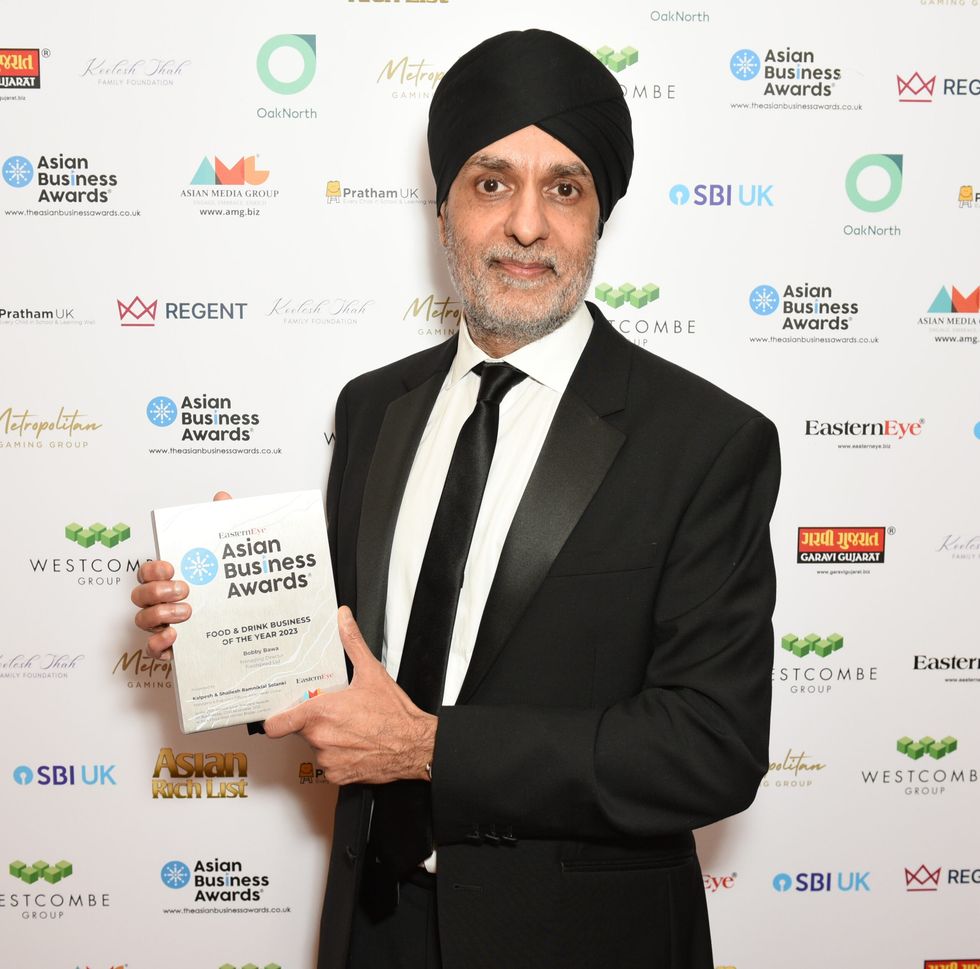
Foodspeed is one of only a handful of Asian-owned businesses to have been awarded the Royal Warrant to HM The Queen, and has built an enviable reputation as leader in the sector.
The company is dedicated to sustainability and actively works to reduce its environmental impact. It maps its supply chain to ensure sustainable and ethical practices especially when it comes to organic produce and animal welfare.
During the Covid pandemic the company donated over £70,000 in food to charities.
Karim Janmohamed, co-CEO of Karali North America, lifted the award for Young Entrepreneur of the Year.
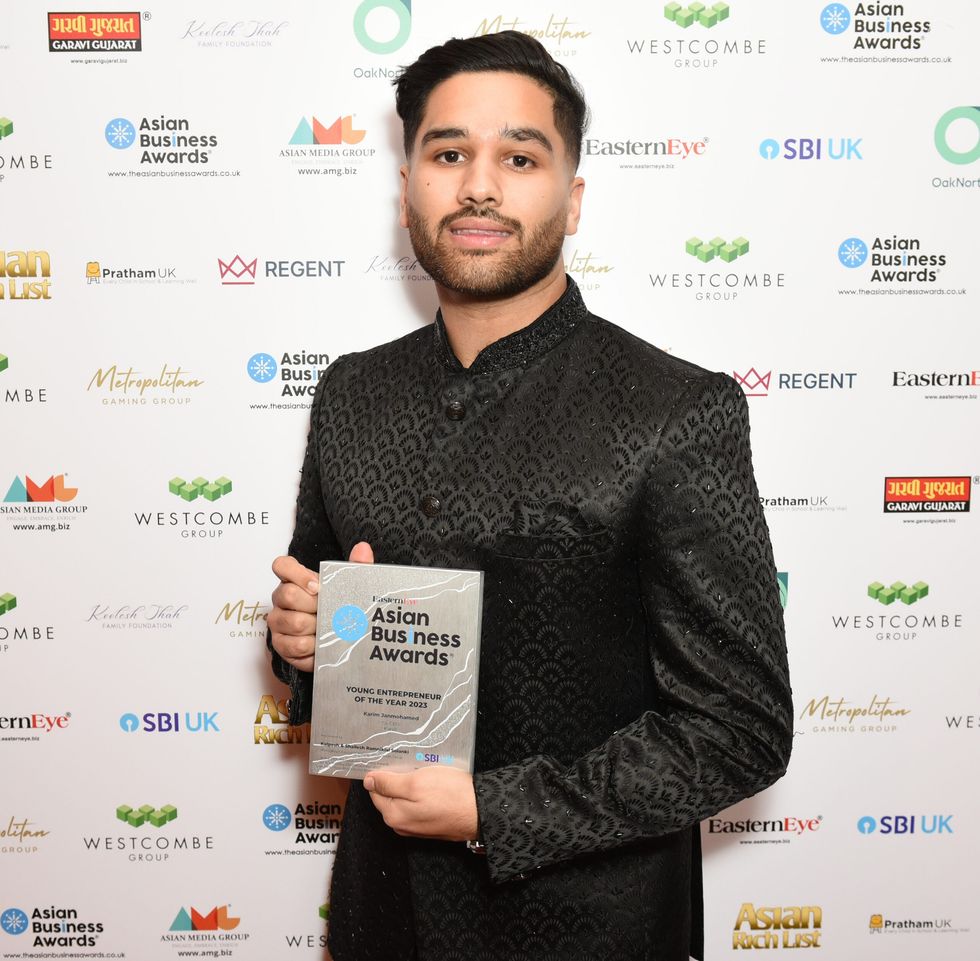
A graduate of both Cambridge University and the London School of Economics, gaining first-class degrees from both institutions, Janmohamed joined his family business after a stellar career in investment banking.
In a little less than two years he helped his family exit the quick service restaurant business at the top of the market and then orchestrate the family’s re-entry in the market with the purchase of 32 Burger King Restaurants in prime locations in the US.
The Media Personality of the Year Award went to Parul Goel, territory head of UK at Zee TV.
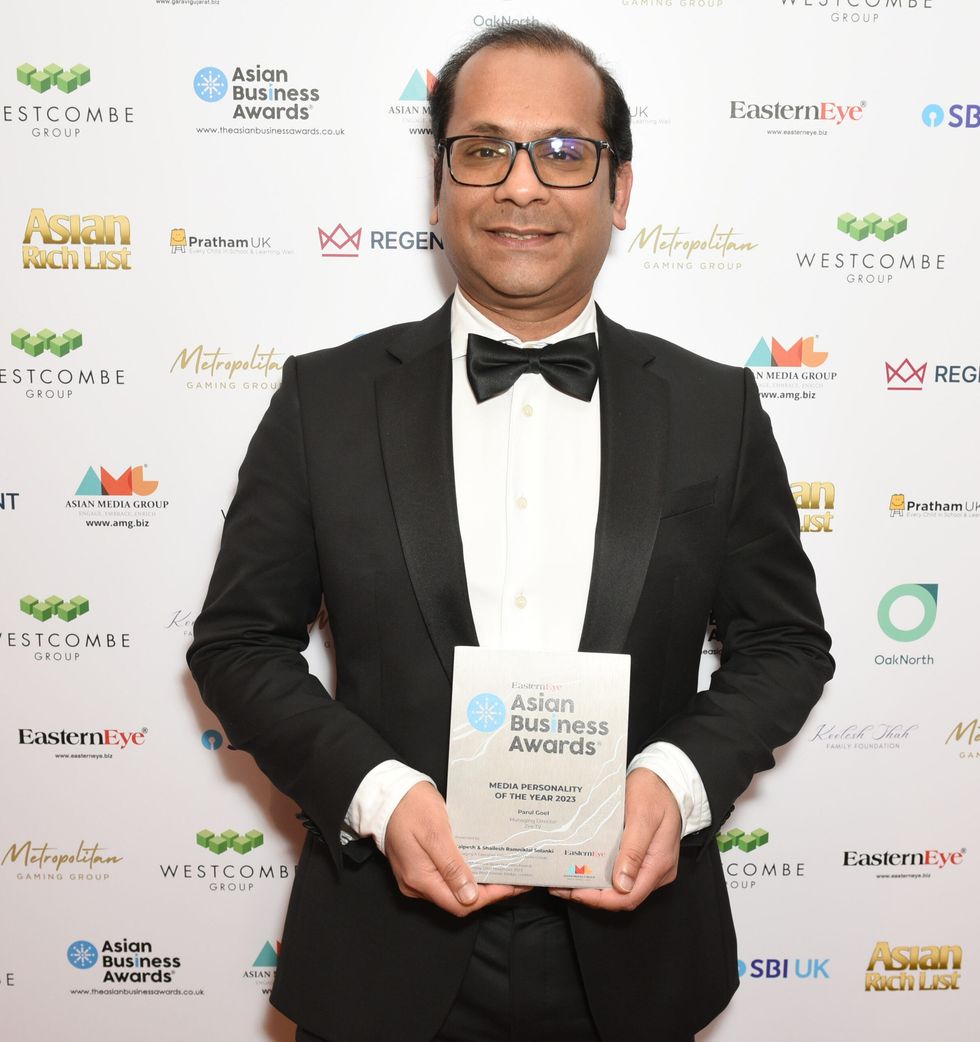
Zee TV is one of the leading Indian media networks in the UK and Europe. Under Goel’s leadership, Zee TV launched four new channels this year and witnessed double digit growth.
Dr Selva Pankaj, founder and CEO of Regent Group, was recognised for his work in building an education empire with the Eastern Eye Entrepreneur of the Year Award.
Dr Pankaj is an author, researcher and an educational leader who co-founded Regent with his wife Tharshiny in 2000, originally providing private tuition at £20 an hour.
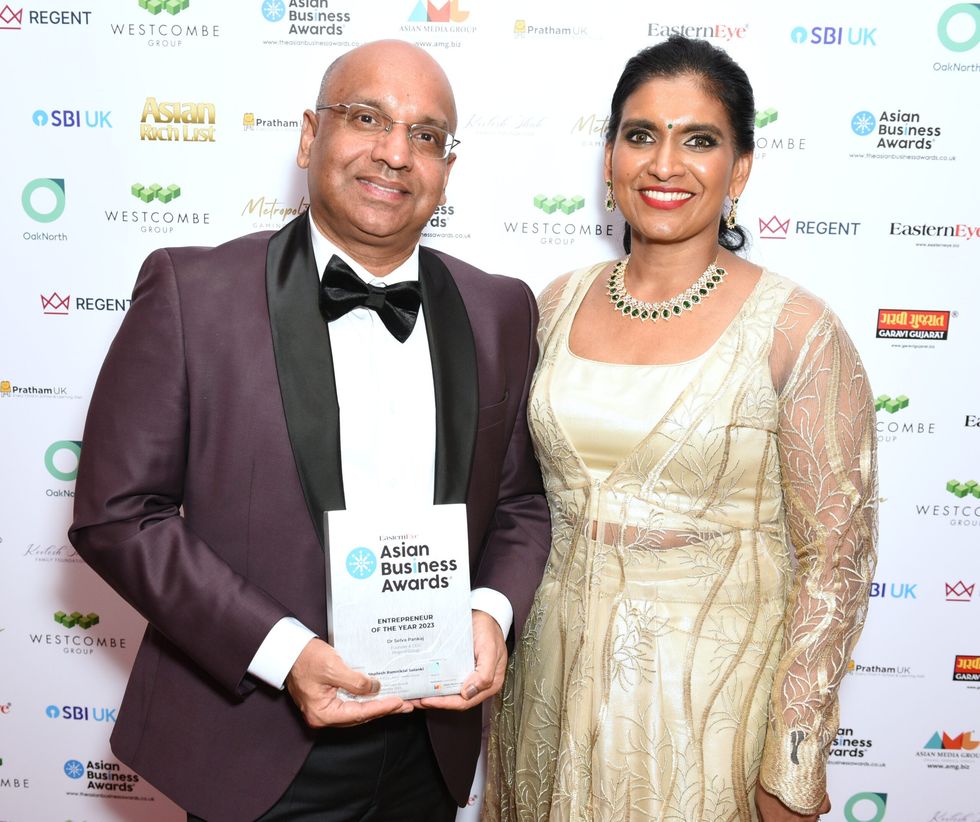
He arrived in the UK at 19 from war-torn Sri Lanka and qualified as an accountant before gaining an MBA.
Dr Pankaj became interested in the knowing-versus-doing gap, and soon developed his Thinking into Character learning programs he had discovered while at Harvard University.
Through Regent, his on-demand and self-paced programs have already reached over 50,000 students.
The Next Gen Leader of the Year Award went to Sanjay Arora, chief operating officer of Arora Group.
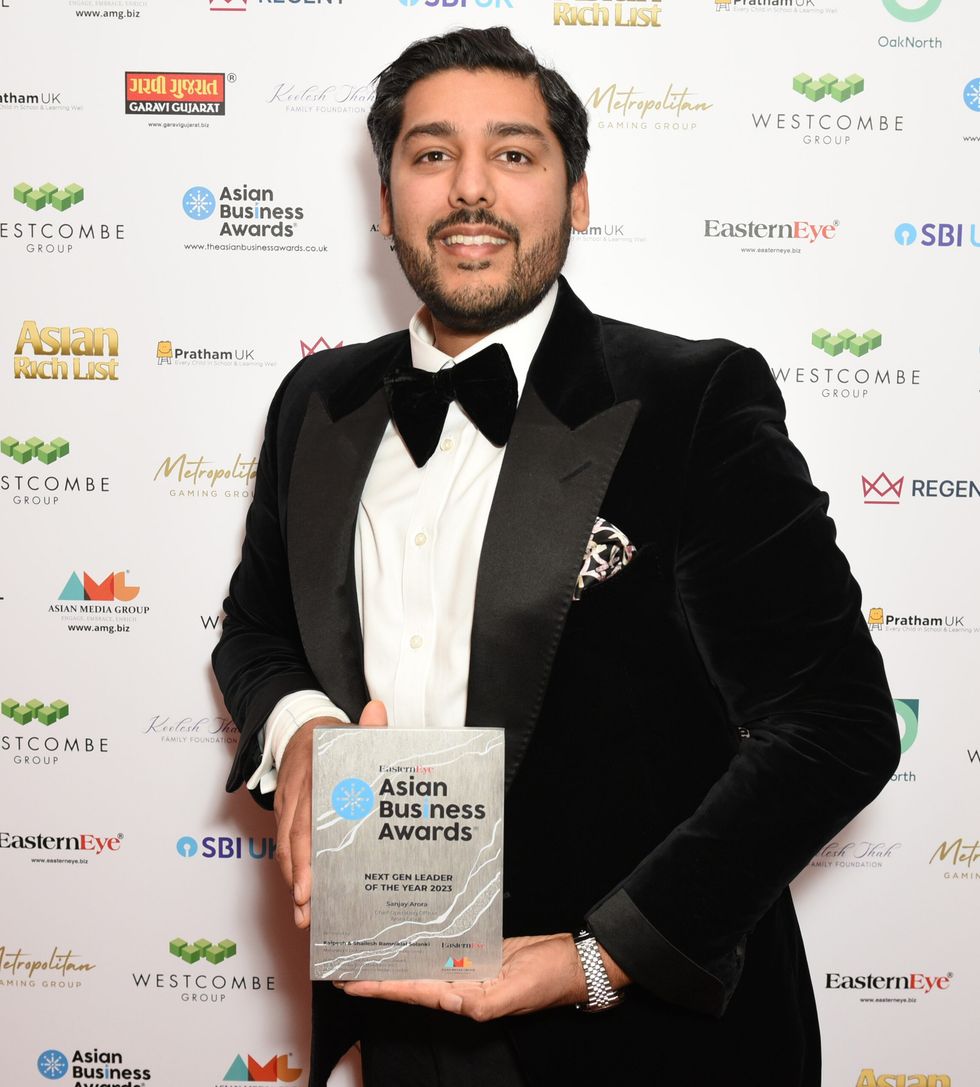
After beginning his career at KPMG and then pursuing an MBA, Arora joined his father Surinder in the Arora Group in 2016, serving as a director, overseeing the group’s new acquisitions and new developments, including two new landmark hotels which have become favoured venues for business leaders and prime ministers.
He was appointed group strategy director in 2019 and then chief operating officer in 2022, setting the vision for the future of the Group as well as continuing to diversify the existing portfolio into new sectors.
Vraj Pankhania & Family collected the Philanthropy Award.
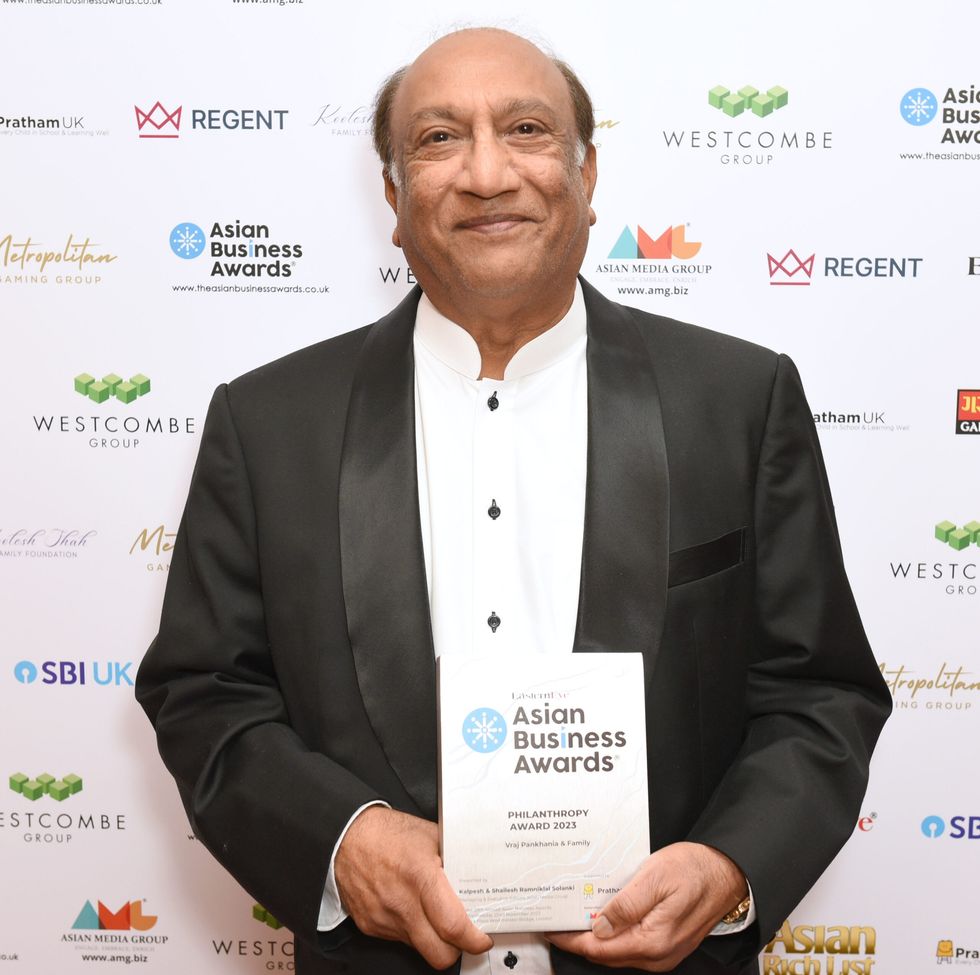
Pankhania is an entrepreneur with a social conscience who once said that “with success comes a moral obligation to ensure that the bright light of prosperity reaches those parts of society which are too often overlooked.”
Over three decades he has donated millions of pounds through the Westcombe Foundation and is personally involved with every project, from transforming cancer treatment after witnessing poor facilities in India, distributing artificial limbs in Africa, to rebuilding schools in earthquake-torn Nepal.
In Britain, he supports Centrepoint, Crisis and the Trussell Trust to help those in dire poverty as the cost-of living crisis grips the nation.
The Eastern Eye Inspire Award went to Dr Swati Dhingra, external member of the Bank of England Monetary Policy Committee.
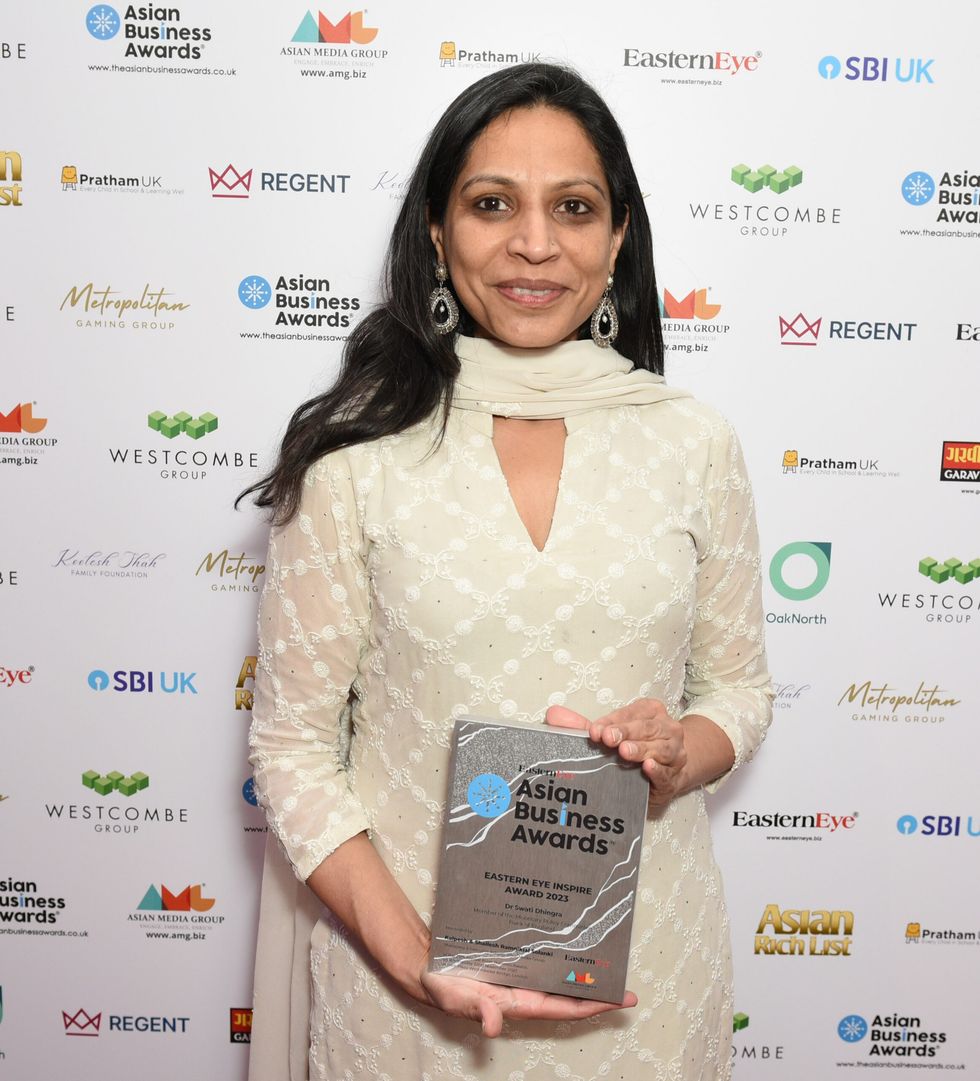
Dhingra graduated from the University of Delhi and then the University of Wisconsin-Madison, before becoming a post-doctoral fellow at Princeton University.
Now, as well as being the associate professor of economics at LSE, she is one of the country’s leading economists and an eminent member of the MPC panel who has taken a more cautious approach to recent rises in interest rates.
Dhingra is also a director of The Royal Mint Museum and a member of the Steering Group for the UK’s Economy 2030 Inquiry.
BBC presenter Nihal Arthanayake hosted the event, where sponsors and supporters included the Westcombe Group, OakNorth Bank, the Koolesh Shah Foundation and the Regent Group.
To purchase a copy, see www.easterneye.biz/ARL/subscribe/ or via email Saurin Shah saurin.shah@amg.biz or by calling 0207 654 7737.
